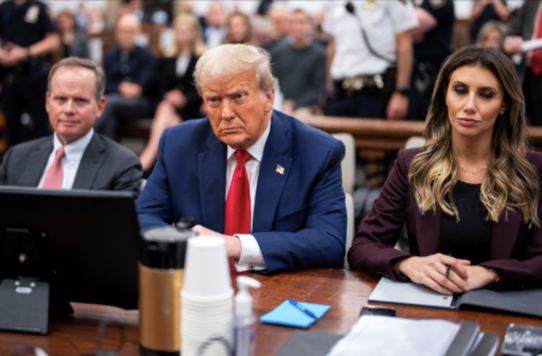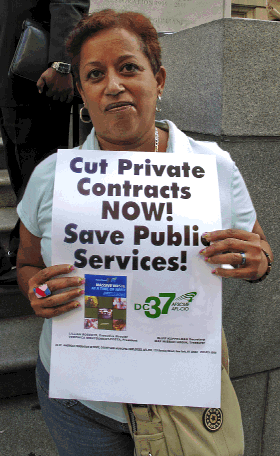BY GREGORY N. HEIRES
The fight for economic justice is picking up steam as the pandemic-induced economic crisis underscores our economic and political system’s deep inequities.
Among policymakers and political activists the crisis has sparked a discussion about how aggressively engaged the government should be in creating jobs as opposed to focusing on temporary solutions such as providing unemployment relief. Ultimately, this raises a question about the depth of the government’s role in regulating or managing the economy.
This policy question recently came into focus as U.S. Rep. Ayanna Pressley (D-Mass) introduced a resolution on Feb. 18 calling for a federal job guarantee. Pressley unveiled the proposal for legislation to create a government jobs program at a virtual town hall meeting she sponsored that day alonwith the National Jobs for All Network, PolicyLink, and Public Money Action.
“It’s time to establish a legal right to a job for all people in America,” Pressley said. “For years, we have legislated hate, harm, and injustice in this country. It’s long past time to pursue bold, intentional policies that affirm equity and recognize the dignity and humanity of all people.”
A Legal Right to a Job
Anchored in the movement for economic justice and civil justice, the resolution calls for:
• a legal right to employment,
• a federal program to create public jobs with living wages and
full benefits in infrastructure and caregiving projects, and
• ongoing federal funding.
“A federal job guarantee is an important investment in the American people, our communities, and an equitable economy that works for all,” Pressley said. “It affirms the right to meaningful, dignified work and a living wage. I’m proud to build upon and honor the legacy and work of generations of black women civil rights leaders by introducing this historic resolution.”
At the town hall meeting, Pressley was joined by economists and advocates who spoke of how the program would address the needs of the millions of workers and families affected by structural unemployment and job loss. They underscored how the program would provide the government with a crucial tool to respond to economic downturns, lift millions of people out of poverty, revitalize the union movement, create well-paying jobs with benefits and promote the dignity of work.
Eliminating Unemployment
A panelist at the town hall, Darrick Hamilton, the director of the Institute for the Study of Race, Stratification and Political Economy at the New School and NJFAN board member, underscored the far-reaching societal benefit of the jobs guarantee.
“It would literally eliminate unemployment,” Hamilton said. With a jobs program, the country would no longer have a category of workers known as the “working poor,” he said. Hamilton added, “We need to understand what is the moral foundation of what we want: A civil right to a job.”
Shawn Sebastian, the senior strategist of People Action’s People and Planet First Initiative in Rural America, noted that unemployment is a political choice. Indeed, the discussion about unemployment poses a fundamental question: Should the government continue to allow millions of people to be thrown into the streets during economic crises, or will it instead commit to a policy that would help people who lose their jobs find new dignified employment?
“A job is essential for everyone,” Sebastian said. “Imagine the weight that falls off the community if the threat of unemployment is no longer there,” he said. People’s Action represents 40 organizations in 30 states; the organization works with diverse residents in many needy rural communities.
Steven Pitts, the host of the Black Work podcast, said the job guarantee would restore public trust in government, which for half a century has been the target of a right-wing political attack. With only 10.8 percent of workers represented by unions, one of the proposal’s underlying goals is to strengthen collective bargaining. “At the end of the day, when we talk about wages and benefits, it’s a question of power,” said Pitts, underlying how important a union revival would be to empower workers and their families.
Beware of the Deficit Hawks
Even though broad public support exists for a federal jobs program, supporters acknowledge they face an uphill battle. They expect to run into stiff opposition from deficit hawks. Both Pressley and Hamilton addressed the anticipated politically-motivated attack from fiscal conservatives.
It’s time to recognize that the government has the resources to support a federal jobs program, Hamilton said. “We can’t buy into this false scarcity narrative,” Pressley said. Last year, the government allocated $750 billion for military spending as the country was living in the midst of the pandemic-induced economic downturn, she pointed out. “The reality is that we are already paying by not paying” for the job guarantee, she said. “We are already paying for unemployment.”
“We see that the public supports a federal jobs guarantee, and yet we know to move this is going to be a battle,” said Angela Glover Blackwell, moderator of the town hall meeting, which was called “A Federal Job Guarantee: The Cornerstone of An Equitable Economy.” Glover Blackwell is the founder of PolicyLink, a national research institute focused on advancing racial and economic equity. “A few elected officials will dig in,” Glover Blackwell said.
The federal job program would be implemented through a series of legislative actions, Pressley said.
Fulfilling the Rev. Dr. Martin Luther King Jr.’s Dream
Pressley described the jobs guarantee agenda as a “national reckoning” that evoked the Rev. Dr. Martin Luther King Jr.’s legacy. She noted that the 1964 March on Washington was not only a demand for freedom but also for jobs. Apart from addressing unemployment, the new government program would also respond to structural racism and white supremacy, Pressley said.
After her husband’s assassination, Coretta Scott King embraced the right to a federal job guarantee as she fought against what she described as “economic violence of unemployment and poverty.” (See https://www.washingtonpost.com/news/made-by-history/wp/2018/04/04/the-king-who-carried-on-the-fight-for-economic-justice/ and http://bostonreview.net/class-inequality-race/david-stein-why-coretta-scott-king-fought-job-guarantee.)
“We certainly welcome Rep. Pressley’s initiative, which we hope is going to make a federal job guarantee a central part of our national political debate,” said NJFAN Chair Trudy Goldberg. “We stand ready to work closely with all advocacy groups and legislators who support comprehensive jobs legislation.”
Pressley expressed her hope that the agenda will count on aggressive backing from the country’s economic and social justice movement.
“Organize, baby, organize,” Pressley said, quoting King.
A video of the town hall is available here.
For more information about the jobs guarantee proposal, go to
Resolution Text (PDF) and | Summary (PDF) and www.JobGuaranteeNow.org
A version of this story was originally published in the Jobs for All Newsletter April 2021 issue.
New Crossroads blogger Gregory N. Heires is the former president of the Metro NY Labor Communications Council and is editor of the Jobs for All Newsletter, a publication of the full-employment advocacy group National Jobs for All Network.







